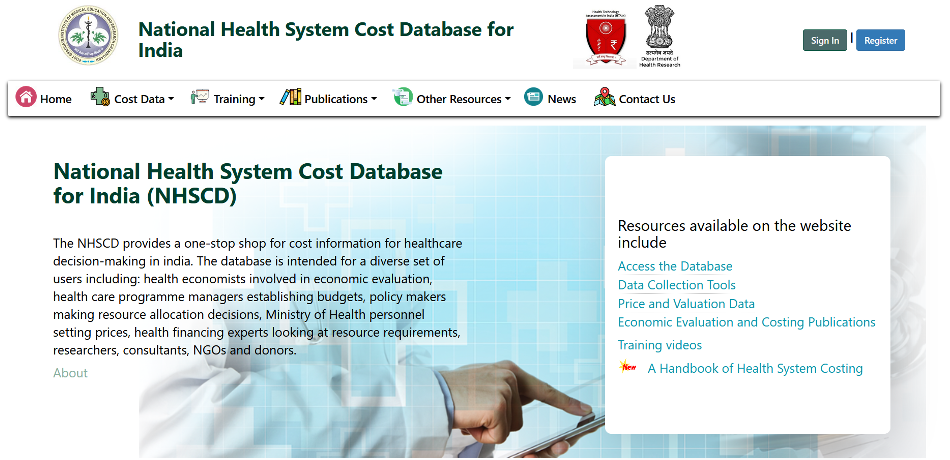November 04, 2011
WHO’s Executive Board met last month to review progress on reforms at the agency. Among the documents distributed to the Board, there is a report on plans for priority-setting amongst the WHO’s 213 projects run by 8 organizational divisions and 15 regional and special offices.
Everyone agrees that WHO should set priorities in an era of declining resources and eroding purchasing power, but how?
The Director-General’s report is an early effort to figure this out.
The document lists five “core areas” of work – health development, health security, health systems, evidence and convening. These core areas are said to link to what WHO “does best” and that “distinguish WHO from organizations whose prime function is to manage and disburse loans and grants as their main lines of business, and from institutions that develop knowledge without necessarily being responsible for its application.” However, the report does not offer an evaluation of “what is done best” nor does it explain the mysterious, somewhat passive-aggressive reference to other organizations and its implications for WHO’s comparative advantage.
Within the five core areas, WHO proposes to prioritize “flagships… that reflect global concerns”: (i) communicable and non-communicable disease; (ii) health systems; (iii) equitable access; (iv) support to country achievement of MDG. Why these? How are health systems and equity global concerns? No reason is given. And are these broad categories just a re-packaging of the five core areas using slightly different terminology?
After that, there is some muddled language – something like, after the flagships, Member Countries should prioritize activities based on disease burden, need/demand and WHO’s capacity/mandate.
For the next round of thinking on priority-setting, I have three suggestions for WHO and its Executive Board that focus on establishing the parameters within which priority-setting should occur:
(1) Define “global concern”
A “global concern” should refer to transnational issues that affect multiple states and require coordinated action to achieve progress or prevent harm. Global issues are those where there is a collective action failure, where perverse incentives in the global system militate against policies or actions that would ensure greater overall welfare. It is in this global space that WHO has a unique and essential role to play.
Under this definition, NCDs in general do not make the cut, but transnational trade practices that permit or facilitate unfettered LMIC market access to multinational tobacco companies would be included. Under this definition, the implementation and monitoring of the International Health Regulations is included, but not maternal health. Standard-setting, surveillance, data, essential medicines/devices lists and coordination for communicable disease prevention and control are typical examples of transnational issues requiring WHO. The WHO’s Commission on Macroeconomics and Health developed a great working group report on global public goods in health; this could be revisited during the reform.
There is a sub-set of issues that could be termed “shared concerns,” where the “global concerns” criteria would not apply, but where global knowledge products, benchmarking and exchange will be helpful for countries, and could generate economies of scale for countries. Topics within maternal health would fall here, MDG might fall here, NCD might fall here. Yet here there are capacity constraints, so the organization will have to be selective within this category.
By limiting WHO’s space to global and shared concerns as defined here, it is possible to distinguish a unique WHO role and, using this unique space, inform priorities (see 2).
(2) Define “priority”:
A “priority” is the set of activities that is fully funded and adequately staffed. If we understand “priority” in this way, the Executive Board will not force the WHO to list everything that is good in the world in its documents, but only that which will be financed. Ideally, that which will be financed will flow directly from the definition of “global and shared concerns”.
(3) Decide on a priority-setting process with agreed and transparent rules of the game:
When health systems are forced to ration care, they frequently resort to an explicit priority-setting process that combines technical inputs like cost-effectiveness with ethical, equity, budgetary, capacity and other considerations in order to reach a decision that is durable and defensible. Such processes recognize the political and economic forces at play, and manage them through commonly agreed rules of the game.
As the priority-setting “facilitator”, WHO can set these rules of the game for its governing bodies, starting from the basic definitions proposed here.
Imagine the following:
Once criteria for a “global concern” has been established and agreed, a technical dossier would be prepared around each proposed area – that would describe how the area/activity met the “global concern” criteria along with its cost and budget requirements. An expert committee –built off the CMH global public goods working group- could assess the dossiers and make a recommendation for a short list of “global concerns”. The short list and attached dossier could go the Executive Board, who would have to consider the technical evidence and other criteria, understand the trade-offs (fully funding IHR implies removing funding from x), deliberate and come to a final recommendation. That final recommendation would be submitted to the Assembly.
In this way, global concerns are first priority, are well justified and are fully funded and staffed. A subsequent process for the “rest” would have to be undertaken progressively.
I don’t think WHO wants to get into an independent evaluation of “what it does best” at this time, as it will only be an opportunity to pile on and a disincentive for future financial support. Rather, the WHO should stop with the large, broad categories of activities that fail to delimit its unique role, and repackage the process of setting priorities to respond to genuinely global concerns.
Disclaimer
CGD blog posts reflect the views of the authors, drawing on prior research and experience in their areas of expertise. CGD is a nonpartisan, independent organization and does not take institutional positions.





